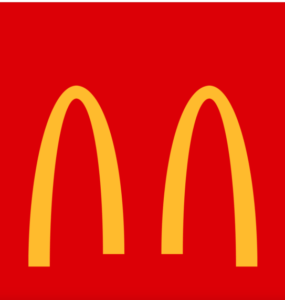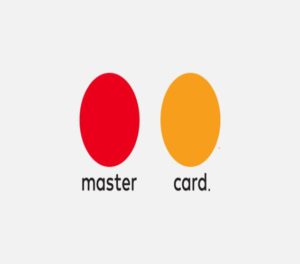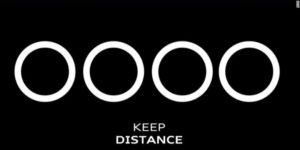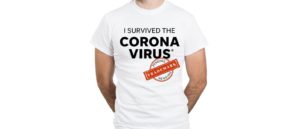The Coronavirus has affected more than 205 countries, territories, and areas to date. The spread of this pandemic has been rapid. It has led to unprecedented government intervention. There have been lockdowns, border and business closures. The incredible impact of the virus has threatened many industries. Hospitality, aviation, and events are the ones that are facing imminent shrinking. We must observe how brands are modifying their marketing strategies to fit in.
Concept of Trademarks
To understand the concept of brands, we need to know the basics of trademarks. A trademark includes any word, name, symbol, configuration, device, the shape of goods, packaging, combination of colours, or any combination thereof which one adopts and uses to identify and distinguish their goods and services from those of others. A brand is those symbols branded on the goods or services as trademarks. A trademark thus performs two essential functions;
- It protects the public from confusion and deception. It identifies the source of origin of a product as distinguished from other products; and
- It protects the trademark owner’s trade and business as well as the goodwill, which is a part of his trademark.
The Trade Marks Act, 1999, governs the trademarks in India and section 2(1)(zb) of the Act defines a ‘trademark’.
The Issue at Hand
Brands or trademark, unlike other forms of IPRs, is a consumer protection tool. It helps in fulfilling the objectives mentioned above. Trademarks depict the social, political, and economic condition of a country. The pandemic has affected most brands in some way or the other. For example, the Mexican beer brand Corona. It has suffered losses due to its linkage with the global crisis in an unfortunate way. Last month, the beer company announced losses of £132 million. It is due to its naming similarity with the virus.
This article aims to highlight two-fold issues. First, how are the brands altering their marketing policies to spread awareness? Second, how brands are trying to get the coronavirus pandemic trademark itself.
Brands Redesigning Logos to promote Social Distancing
Here are some examples from around the world where the brands have altered their logos. They are messaging to promote safety and social distancing. Logos are an integral part of any brand. The brands are using their logos to spread the WHO message. But, some brands still believe that changing their logos is not a workable option.




Audi’s LogoNow, another question often pops up. Can the brands change their trademarks, as they have done in the cases as mentioned above?
The answer is yes, and they can. It is essential to see that these brands are not changing their logos. They are only altering it in a way that their fundamental essence remains the same.
One basic rule while getting a trademark registered is that it should be distinctive. After you get a mark registered for your brand, you can use it till the time it is not causing delusion to the public. For example, had Mc Donald’s changed the basic colour theme or the font of its logo it would have confused the public. Brands have over the years invested in promoting themselves. A logo of a brand is often considered as a soul to the body. During this pandemic, brands have used their logos to promote social distancing.
Mirum India executive creative director Naila Patel says,
“all creativity done by the brands are welcomed. At the time of crisis, this kind of move attracts the attention of consumers.”
People Trying to TradeMark Coronavirus Pandemic

In India, various brands have filed applications. Particularly for goods and services related to clothing, pharma, fitness, and photography services. It is to get a trademark related to the coronavirus pandemic registered. These applications contain marks consisting of terms like, ‘Covid-19’, ‘Coronavirus’, and ‘Social Distancing’.
Examples of such applications are:
“I survived Covid-19 t-shirts;”
‘Corona’- computer anti-virus software
‘Corona Safe’- smoothing face mask, etc.
Section 9 of the Trademarks act, 1999, deals with absolute grounds of refusal. Under this section, the court will probably reject these applications. Section 9(1)(b) & 9(2)(a) are essential for our understanding of the issue.
Section 9(1)(b) states that refusal may be of the marks “which consist exclusively of marks or indications which may serve in trade to designate the kind, quality, quantity, intended purpose, values, geographical origin or the time of production of the goods or rendering of the service or other characteristics of the goods or service.”
Marks such as ‘ANTI-CORONA’ and ‘CORONA-SAFE’ are descriptive. They are not suitable for registration. Moreover, these marks are not already in use. Hence, they cannot seek the exception given in the proviso for ‘acquired distinctiveness’.
Section 9(2)(a) states that one cannot register a mark if “it is of such nature to deceive the public or cause confusion.” This section makes it clear that a mark that deceives the public will not be registered. The countries around the world are still making efforts to develop a vaccine for the virus. Companies are filing applications to register marks such as ‘GO-CORONA’, ‘NOCORONA’, and ‘CORONA-RELIEF’. These marks, by their very nature, are deceptive and prohibited. Thus India may not permit registration of such trademarks.
Author’s Note
The Trademarks Act states that the redesign of a trademark is not a ground for cancellation. It is till the time it is not deceptive and confusing the general public. Thus, the action of the brands redesigns their logos is within the boundaries of the law. The brands are taking this step to spread awareness among the people. Some brands are trying to get trademarks registered for the pandemic. They won’t succeed due to the marks being descriptive and causing deception to the public.
But what about the brands that have registered marks? For example, the Corona beer, ‘COVIDON’, or ‘CORONA REMEDIES’. Section 57 of the Act, provides myriad grounds for cancellation of a trademark. The ground applicable in this case would be “entry remaining on the register.” Due to change in circumstances, these marks have lost their distinctiveness. They have the potential to deceive the public. Thus, they stay in the register. Precedents on cases for cancellation show that they are initiated by another brand for similarity and not by the brand itself. It would thus be intriguing to follow these cases. As we will know their way of proceeding with it; whether they will redesign and re-brand themselves or cancel the mark as a whole.
Libertatem.in is now on Telegram. Follow us for regular legal updates and judgements from the court. Follow us on Google News, Instagram, LinkedIn, Facebook & Twitter. You can also subscribe for our Weekly Email Updates. You can also contribute stories like this and help us spread awareness for a better society. Submit Your Post Now.

